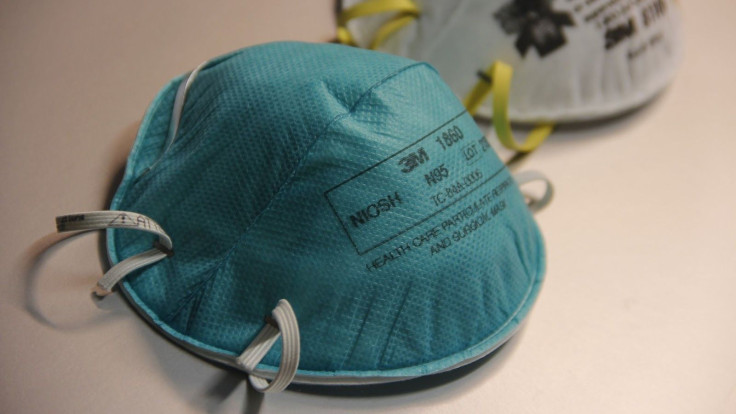Stop Using This Type Of Face Mask Against Omicron Variant, Experts Say
KEY POINTS
- Doctors and experts are urging people to use N95 masks as the highly contagious Omicron variant continues to spread
- Single-layer cloth masks are typically ineffective when it comes to virus particles, experts say
- Double masking can be an alternative if N95 masks or their equivalents are not available
Doctors and experts are urging everyone to ditch cloth masks and use better options instead as the former do not offer enough protection against COVID-19.
"A cloth mask does not offer protection that you need," Dr. Asha Shajahan, a family medicine physician for Beaumont Health, was quoted as saying by Fox 2 Detroit.
Single-layer cloth masks, which many prefer to use for their comfort and style, are capable of blocking larger droplets carrying COVID-19, a report by The Wall Street Journal said. However, this type of mask is typically ineffective when it comes to virus particles, according to Shajahan, who is also the medical director of Community Health for Beaumont Grosse Pointe.
Instead of cloth masks, people should use either surgical masks with filters built into the material or a certified face mask such as N95, Shajahan said. For those who are unable to find these masks, the physician suggested improving the effectiveness of cloth masks by making sure they are at least two or three layers.
Surgical masks are made of polypropylene, which has electrostatic charge characteristics that block the virus.
Monica Gandhi, an infectious disease specialist at the University of California in San Francisco, also recommends that people use N95 masks or their equivalents over cloth and surgical masks. The doctor explained that "if everyone is just wearing a cloth mask or just a surgical mask, it won’t make any difference" against the Omicron variant of COVID-19.
"If you really want no exposure, you have to wear the right type of mask," Gandhi said.
Compared to surgical or cloth masks, N95 masks, named after their ability to block at least 95% of airborne particles when properly fitted, have a denser network of fibers that are generally the most efficient at trapping larger droplets and aerosols that are exhaled by their wearers. Additionally, they block such particles from being inhaled as well.
The N95 certification is handled by the National Institute for Occupational Safety and Health, while its KN95, KF94 and FF2P counterparts are certified in China, South Korea and Europe, respectively.
Gandhi recommends double masking — or layering a cloth mask tightly on top of a surgical mask — as an alternative if N95s or their equivalents are not available.
"Any mask is better than no mask," said Dr. Ranu Dhillon, a physician at Brigham and Women's Hospital, but added that surgical masks are "not as good as N95-caliber masks."
Dr. Graham Snyder, medical director of infection prevention and hospital epidemiology at the University of Pittsburgh Medical Center, said that any correctly worn quality mask that has an effective seal offers protection. He explained that he was more concerned about the number of people who do not wear masks of any type.
"Masking works. Period," Snyder said.
The Centers for Disease Control and Prevention's most recent guide to wearing masks recommends masks that have two or more layers of a washable and breathable fabric, can completely cover their wearers' noses and mouths, fit snugly against the sides of their wearers' face and do not have any gaps and have a nose wire to prevent air from leaking out of the top of the mask.
The U.S. has reported a total of 55,121,185 COVID-19 cases and 826,061 deaths as of Sunday, data provided by Johns Hopkins University showed.

© Copyright IBTimes 2025. All rights reserved.





















